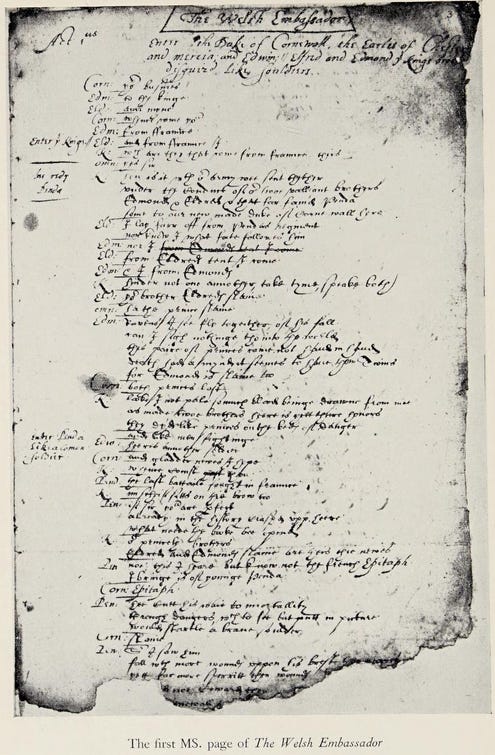Well, I did it again: I read a play that does not technically count towards my total because it was never actually printed. (Or at least, if it was, no copy survives.) One manuscript copy exists, held by the Cardiff Central Library in Wales. The library records describe the manuscript’s state in this delightful manner:
“Copy, in a professional secretary hand, with dramatis personæ and stage directions in italic, 22 folio leaves, imperfect, partly chewed by rodents, in modern half red morocco. Including prompter's cues (‘bee redy Volemar’, etc.) and cuts, prepared for use by a London theatrical company, perhaps for Lady Elizabeth's men at the Phoenix or Cockpit in Drury Lane. The hand is that also responsible for Massinger's Parliament of Love (MsP 3). c.1624.”
I had wondered why so much of the text in the Kindle copy I have been reading appeared in <brackets,> an editing convention that typically indicates conjectural reconstruction of textual corruption. And the answer is as follows: smol creatures nommed the words, and as you can see above in the manuscript image, the nibbles were fairly extensive.
Keep reading with a 7-day free trial
Subscribe to All the Words on Page to keep reading this post and get 7 days of free access to the full post archives.



